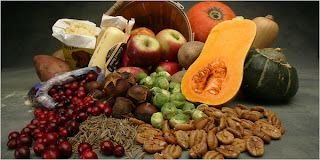There’s a popular belief that earning power leads to better nutrition. Seems like a simple cause and effect. I personally don’t buy it, as I know that fast-food restaurants do quite well in poorer neighborhoods; and fast-food isn’t cheap. Nutritious foods can be purchased for the same amount of money–or less!
But now we know for sure that the reverse is true; that better nutrition, especially in early childhood, can lead to greater earning power later in life. So says a long-term study conducted in Guatemala, which researchers point out could lead to less poverty through childhood feeding programs. Hallelujah! Now that’s science that makes sense. Finally a study that doesn’t try to squeeze the data to fit a particular (and often political when it comes to poverty) viewpoint. Just plain ol’ data collection, analysis and final conclusions. Crazy thing that science.
The study looked at 1,500 people that had been involved in a nutrition study between 1969 and 1977 with some receiving a nutrient-rich protein porridge-like drink and others receiving a less nutritious placebo. They found that men who had received the nutritious porridge before the age of three earned 46% more per hour than those who did not. Children over three years old receiving the nutritious porridge showed no increase in earning power. These results show that early childhood nutrition through feeding is crucial, especially since many well-known programs–like the United Nation’s World Food Program–focus on early childhood nutrition through supplementation and save the feeding programs for older kids.
I always say that there is no substitute for real food–regardless of age. Supplements are good to supplement real food, not substitute for them. And real food should be the focus for all children, especially at the early age. So much development happens in the first few years of life, and young children need basic building blocks for proper growth and tissue formation; and this can only be gotten from real food. Bravo to the International Food Policy Research Institute (IFPRI) for conducting this study–it should help developing nations, and it should help us here at home.












